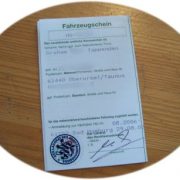With Bill Gates stepping down from his position running Microsoft, it’s quite interesting to take a look at how I have come into contact with their products over the years.
The very first computers that I had anything to do with came from Texas Instruments, Sinclair, BBC/Acorn and Research Machines – and none of them had anything to do with software from Microsoft. As it happened, some software for the Sinclair computers was written by Psion, who I later worked for myself.
But at some stage I came into contact with something called MS-DOS, although it may have been some form of PC-DOS on an IBM PC at the time. For many years that was probably the only piece of Microsoft software that I used regularly. At school we did have Windows 1.0 available and Word (for DOS) 5.0, but I don’t remember using them much.
Whilst at university my laptop (with 640K of RAM) ran on DOS 3.x, the university PCs and our computer at home ran on DOS 5.0 and Windows 3.1 or 3.11. It was not until I spent a year as a student in Germany that I really had much contact with Microsoft Office – Version 4.3 (ie. Word for Windows 2.0).
Ironically I probably had most of my contact with the inner workings of any Microsoft products during my time at Psion in Germany – usually working out why some file or calendar would not convert or synchronise with Microsoft Office products, or why the palmtop was not connecting properly to a new release of Windows.
These days the operating system has got much more complex – there is just so much to learn about Windows XP and Vista, not to mention and of the server operating systems. But with so much now web-based, the trend has reverted to simpler applications.
Products like OpenOffice.org and Mozilla Firefox and Thunderbird have changed the way home users use their software, with Microsoft Outlook being something I normally only see in a corporate environment.
But whatever you may think about Microsoft’s software policies, there is one thing I definitely admire Mr. Gates for: unlike many IT managers out there, he started “hands-on” – he programmed computers, he wrote code for the company’s first products and grew from there. He is not someone brought in “just” to run the company, but knows the background of what he is talking about.
When I look at what IT students study today and compare it with what I studied in the 1990s, I am sometimes horrified how little is taught about the “basics”. I learnt how to structure a database and code it, I didn’t just click it together in a front end. I learnt about how and why things happened, and what consequences actions could have. I was studying at a time when memory was still a scarce and often restricted commodity – something many of today’s software developers would do well to remember.
I still have that laptop with 640K of RAM, no hard disc and a double disc drive. I serves as a good reminder of the days when finding a configuration problem meant looking from an INI-file and not searching the Windows registry. When you had to tell a word processor to start and stop formatting a piece of text, eg. bold, and didn’t see the end result until it appeared on the printer. When a backup of my data meant one or two floppy discs, and not one or two DVDs.






Speak Your Mind